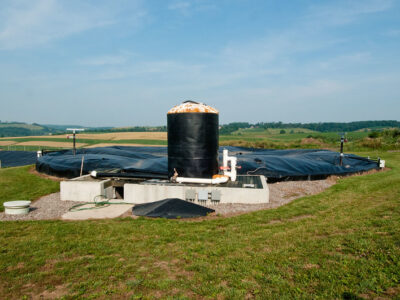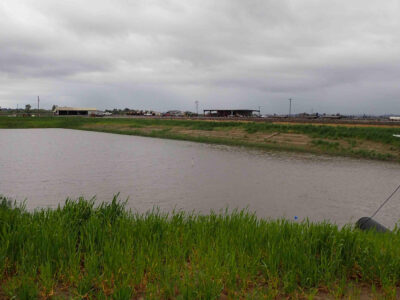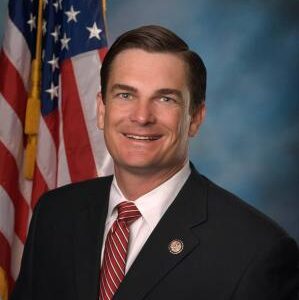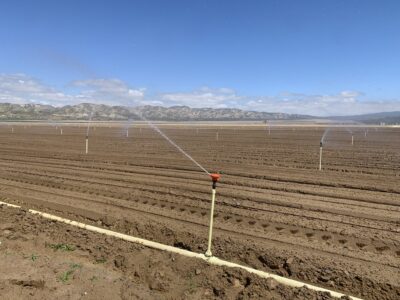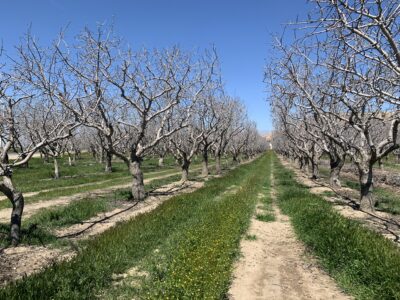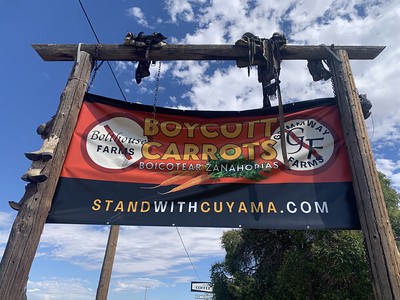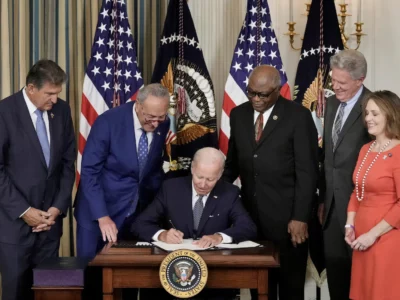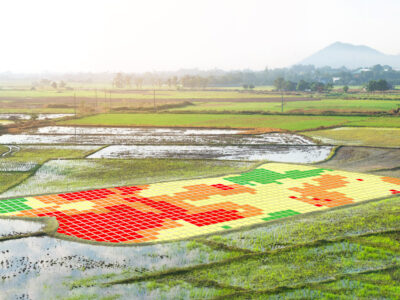Agriculture
Livestock Operations Are Responsible for Over Half of California’s Methane Emissions—Why Won’t CARB Regulate Them?
CARB will have the authority to regulate methane from livestock operations beginning in January but has not initiated rulemaking
At a recent California Air Resources Board (CARB) meeting, a staff member responded to a question about why CARB’s program for reducing emissions from transportation fuels incentivized the capture of methane from landfills so much less than the capture of methane from dairies: “Landfills have a different CI [carbon intensity] score because they are …
CONTINUE READINGRecharge net metering (ReNeM) provides win-win-win for groundwater agency, landowners, & sustainable groundwater management
Nature Water publication showcases the economics of a novel groundwater recharge incentive structure
By Molly Bruce, Luke Sherman, Ellen Bruno, Andrew T. Fisher, & Michael Kiparsky An insidious issue has been growing along the Central Coast and throughout the state of California for decades: groundwater overdraft. In response to this growing threat and 2014 legislation designed to put an end to chronic overdraft, many basins have identified managed …
CONTINUE READINGMeet Austin Scott — No, sorry, say goodby to Austin Scott
Or as Groucho put it, “hello, I must be going.”
Since I started reporting on the environmental aspects of the House Speaker race, I might as well continue. After I last wrote on Friday, following Scalise’s surprise withdrawal, another candidate tossed his hat in the ring, Austin Scott from Georgia. As an aside, I can’t help but wonder: what is the ring, and why is …
Continue reading “Meet Austin Scott — No, sorry, say goodby to Austin Scott”
CONTINUE READINGOne More Key Groundwater Bill Just Became Law
Gov. Newsom signs AB 779, which addresses inequities in California’s complicated groundwater adjudication process.
Earlier this week the San Francisco Chronicle declared that California’s legislative session would close with just a single bill addressing injustices in the state’s water rights system. Now you can add one more to the list. Gov. Newsom signed Assembly Bill 779 into law this week. It’s an important step to reforming the state’s murky—often …
Continue reading “One More Key Groundwater Bill Just Became Law”
CONTINUE READINGThe Not-So-Good News About Carbon Offsets
Recent studies show the significant limits to some carbon offsets. What’s that mean for tropical forest jurisdictions?
In case you missed it: there’s some good news about Amazon deforestation continuing to plunge. Jason Gray and I spoke recently about why tropical deforestation is down in Brazil, Colombia, and Indonesia. That’s good news because deforestation of tropical forests is a huge source of greenhouse gas emissions. The World Resources Institute’s Forest Pulse report …
Continue reading “The Not-So-Good News About Carbon Offsets”
CONTINUE READINGAn Important Groundwater Bill Lands on the Governor’s Desk
Guest Contributors Gabi Rosenfeld, Owen McAleer, and Adrianne Davies say AB 779, a bill they worked on with State Assemblymember Lori Wilson, will address inequities in groundwater adjudications.
Earlier this month, California’s Legislature passed a slate of bills that cover a range of environmental and climate issues. Among those was Assemblymember Lori Wilson’s AB 779, a bill we helped create to improve the groundwater adjudication process for all water users. Adjudications legally determine groundwater rights but can take years and cost millions of …
Continue reading “An Important Groundwater Bill Lands on the Governor’s Desk”
CONTINUE READINGWhy is there a Carrot Boycott in Cuyama Valley?
Small farmers and rural residents are calling for a boycott against Bolthouse and Grimmway Farms. Here’s what it says about California’s effort to manage groundwater.
When California lawmakers enacted the Sustainable Groundwater Management Act in 2014, it was an effort to tame the wild, wild west of water. Nearly a decade later, there’s been some progress creating local sustainability plans, but Big Ag corporations are still hogging water and bullying smaller groundwater users. Look no further than the fight heating …
Continue reading “Why is there a Carrot Boycott in Cuyama Valley?”
CONTINUE READINGIRA Implementation: The State of Play
It’s not easy to get a handle on IRA implementation, but some agencies are off to a good start.
The Inflation Reduction Act is Biden’s signature climate program. You’d think it would be easy to get an analysis of the government’s funding efforts in its first year. It’s not. This seems like an unforced error to me. In political terms, this seems like a lost opportunity to showcase the government’s achievements; it’s also a …
Continue reading “IRA Implementation: The State of Play”
CONTINUE READINGTechnology’s Role in Governing Sustainable Food Systems
Digitalization is altering how we understand the environment and act upon issues of sustainability.
This article is a summary of the third interview in a three-part interview series that explores how digitalization is reshaping environmental governance. I spoke with Sake Kruk who’s a Ph.D. researcher at the Environmental Policy Group at Wageningen University, Wageningen, Netherlands. His research examines how digital technologies are ushering in a new form of environmental …
Continue reading “Technology’s Role in Governing Sustainable Food Systems”
CONTINUE READINGThe Farm Is Not An Algorithm
The inaccuracies of precision agriculture carry socio-environmental risks and produce inequalities.
This article provides an overview of the second interview in a three-part interview series that explores how digitalization is reshaping environmental governance. I spoke with Oane Visser, an Associate Professor in Agrarian Studies at the International Institute of Social Studies. Visser earned his Ph.D. in anthropology from Radboud University, Nijmegen, in the Netherlands. His research …
Continue reading “The Farm Is Not An Algorithm”
CONTINUE READING



